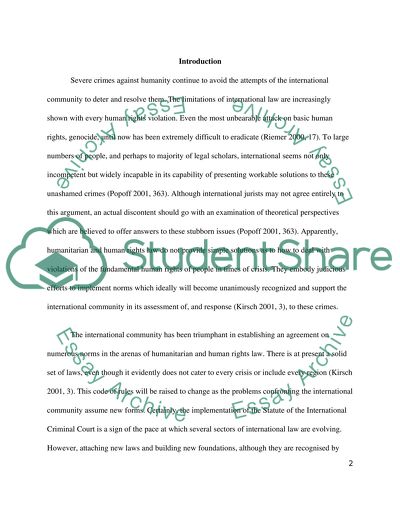Cite this document
(“Prosecuting Violators of International Humanitarian and Human Rights Essay”, n.d.)
Retrieved from https://studentshare.org/law/1425173-to-what-extent-can-states-and-individuals-that
Retrieved from https://studentshare.org/law/1425173-to-what-extent-can-states-and-individuals-that
(Prosecuting Violators of International Humanitarian and Human Rights Essay)
https://studentshare.org/law/1425173-to-what-extent-can-states-and-individuals-that.
https://studentshare.org/law/1425173-to-what-extent-can-states-and-individuals-that.
“Prosecuting Violators of International Humanitarian and Human Rights Essay”, n.d. https://studentshare.org/law/1425173-to-what-extent-can-states-and-individuals-that.


